For those who’d like to know more about Taiwan’s history, but lack the time or inclination to crack open a book, Formosa Files might just be a godsend. Launched on Sept. 6, the podcast is intended to be a highly accessible yet in-depth look at key events over the past 400 years. So far, it’s picked up listeners in 20 countries.
Formosa Files kicked off with an episode devoted to George Psalmanazar, a wandering hoaxer who, despite his blond hair and never having left Europe, managed in the first decade of the 18th century to convince members of London’s elite that he was a native of what was then known as Formosa.
Psalmanazar may seem like an odd place to start. He contributed nothing to the West’s understanding of Taiwan. But his success says a lot about the curiosity of Europeans, as well as their ignorance and gullibility. Most important of all, it’s a riveting tale.
Photo courtesy of Formosa Files
The entire first season of 25 episodes (15 of which have been released) is scripted and presented by John Ross and Eryk Michael Smith.
The division of air-time is roughly equal. Oftentimes, it’s Smith asking questions and Ross giving answers. Neither lapses into lecture mode, but nor is there much idle banter. A great deal of information gets conveyed in the 25-plus minutes of each episode.
“I find the idea that history is boring preposterous, but young people often tell you that. So instead of moving from year to year to year, which is how a textbook or college course works, we’ve tried to throw interesting stories from any period at the listener,” says Smith, a Kaohsiung-based American who worked as a copywriter and news broadcaster at ICRT, and is the station’s current southern correspondent.
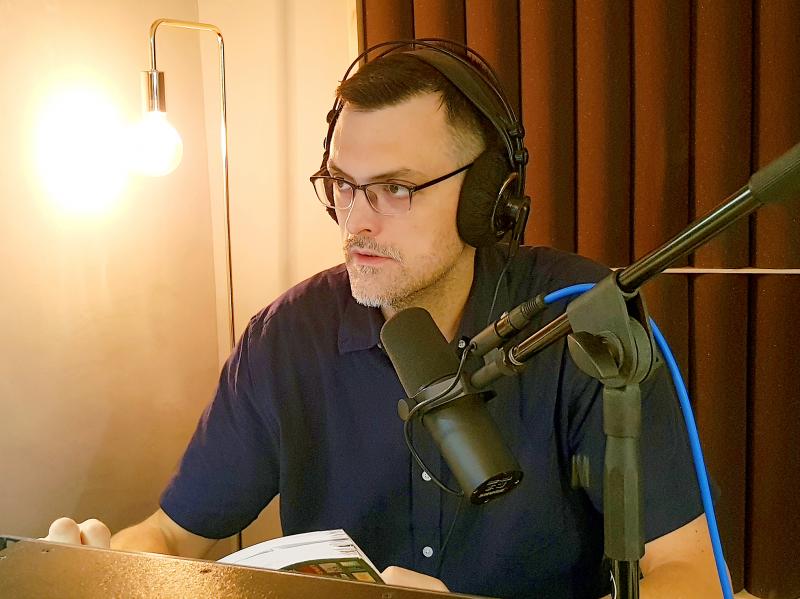
Photo courtesy of Eryk Michael Smith
“A non-chronological order means greater variety, and also tighter storytelling,” says Ross, a New Zealander and Chiayi-based author. Because the majority of episodes are standalones, “the narrative must be self-contained, without reference to episodes that came before or will come after,” he explains.
Episodes 2 and 3 focus on the 17th-century conflict between the Dutch, who then occupied Tainan, and Cheng Cheng-kung (鄭成功, also known as Koxinga), the Ming loyalist forced to retreat from China. Episodes 4 to 9 look at events after World War II. Episodes 10 and 11 zoom in on the 1683-1895 period of Qing rule.
The duo won’t be venturing into the 21st century.
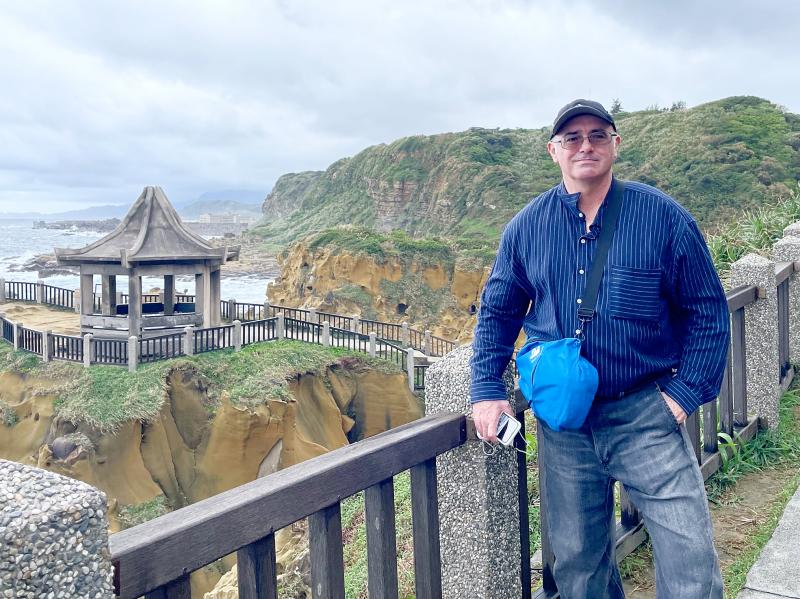
Photo courtesy of John Ross
“Political pundits have plenty to say about Taiwan since the year 2000, but I don’t believe we can call it ‘history’ yet, in the sense of being able to take an unbiased look at what happened. It’s just too recent,” says Smith.
‘TAIWAN’S FASCINATING HISTORY’
Even though they’re quite different in terms of age, life experiences, education and political outlook, Smith says he and Ross are in lockstep on one key question: “It’s not our job to pass judgment on what happened. Our overall goal is hopefully to get people excited about Taiwan’s fascinating history. Taiwan’s past has had so many influences and upheavals. For such a small island, it’s remarkable. I believe we could go for five or more seasons and still not run out of stories to tell.”
Ross says he and Smith quickly agreed on an approach.
“We both favor personal stories set against big events. We want to walk in our protagonists’ shoes, understanding the struggles they faced and the difficult choices they made without the certainty and benefit of hindsight which we have. We have an understanding and respect for people, their flaws and their merits — but not so much reverence that we can’t see the humor in some of the stories,” says Ross, a self-described “huge listener of spoken-work media.”
The bulk of the research work is handled by Ross. For each episode, he spends an average of 10 hours engaged in background reading, refreshing his memory and digging out side stories that’ll engage both casual listeners and history mavens, he says.
The idea of a history podcast occurred to Smith after he was commissioned by Camphor Press (a publishing house of which Ross is a co-founder) to narrate the audiobook version of Ross’s Taiwan in 100 Books.
The duo then produced a demo which they passed on to a few friends and acquaintances, one of whom was Jeff Chen (陳建甫), CEO of the Frank Chen Foundation, which honors the legacy of former Kaohsiung City mayor Chen Chi-chuan (陳啟川, 1898–1993). Chen agreed that the podcast was an idea that the foundation, which is known for sponsoring educational and cultural projects, could get behind by sponsoring the first 25 episodes.
Chen tells the Taipei Times that when he heard the idea for a Taiwan history-told-as-stories podcast, “we thought it’d definitely be a good, new way to help people here and abroad learn more about Taiwan. It’s great to hear these stories in English, as people from all over the world can enjoy them and become interested in Taiwan.”
The foundation recently confirmed it’ll sponsor a second season of Formosa Files. The current season is due to end in February. All going to plan, Season 2 will surface the following month, says Smith.
For Season 2, Ross and Smith will continue their non-chronological approach, Smith promising “tales that include anything from defections during the Cold War, to the history of baseball in Taiwan.”
According to Smith, the foundation has never offered any kind of editorial direction.
“In fact, our sponsorship contract sets out that they won’t comment on content. That doesn’t mean the foundation necessarily agrees with all the commentary that either John or I make, but they’ve been graciously open-minded, trusting us that we’re doing our best to present history in an unbiased manner,” he says.
When it came to creating actual episodes, Smith says that “trial and error were the name of the game. I have a pretty long background in broadcasting and voice acting, but it still took us a couple of months to get into our stride. Telling a historical story in a reasonably short, punchy, and interesting way isn’t easy,” he says.
Both Ross and Smith cite Han Cheung’s (張瀚) Taiwan in Time history column (which appears in the Taipei Times every Sunday) as a major inspiration for their podcast.
LISTENER FEEDBACK
Asked about listener feedback, Smith says that World War II buffs showed particular appreciation for Episode 7, which covers discussion among the Allies whether to invade the Philippine island of Luzon or the south of Taiwan (then ruled by Japan) during the closing part of the war.
“Others have commented with surprise that they’d never heard the story of the Taiwanese man who was with Mao Zedong (毛澤東) on the Long March, and who later set up a spy network in Taiwan that got very close to possibly aiding a successful invasion by Mao’s forces in the 1950s,” Smith says.
Ross found Episode 15 especially satisfying to complete, saying, “The story of Taiwanese Aboriginal people as human exhibits in London should interest listeners with a limited knowledge of Taiwan, yet it’s virtually unknown to even Taiwan history aficionados.”
Saying that they’re happy to bring a lot of southern Taiwan content to the podcast, Ross remarks, “This isn’t simply a result of Eryk and the sponsor being in Kaohsiung and me in Chiayi, but mainly in looking for lesser-known stories. The south has been underserved by English-language media for many decades. That’s something we’re trying to correct.”
Formosa Files is available on all major podcasting platforms, and is free to download or stream.
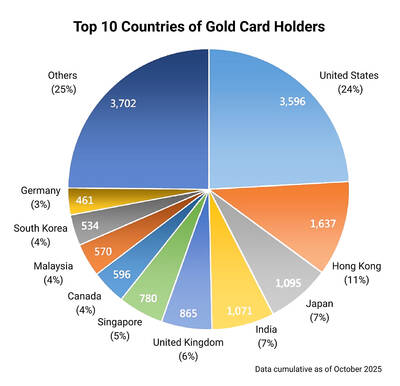
Seven hundred job applications. One interview. Marco Mascaro arrived in Taiwan last year with a PhD in engineering physics and years of experience at a European research center. He thought his Gold Card would guarantee him a foothold in Taiwan’s job market. “It’s marketed as if Taiwan really needs you,” the 33-year-old Italian says. “The reality is that companies here don’t really need us.” The Employment Gold Card was designed to fix Taiwan’s labor shortage by offering foreign professionals a combined resident visa and open work permit valid for three years. But for many, like Mascaro, the welcome mat ends at the door. A

The Western media once again enthusiastically forwarded Beijing’s talking points on Japanese Prime Minister Sanae Takaichi’s comment two weeks ago that an attack by the People’s Republic of China (PRC) on Taiwan was an existential threat to Japan and would trigger Japanese military intervention in defense of Taiwan. The predictable reach for clickbait meant that a string of teachable moments was lost, “like tears in the rain.” Again. The Economist led the way, assigning the blame to the victim. “Takaichi Sanae was bound to rile China sooner rather than later,” the magazine asserted. It then explained: “Japan’s new prime minister is
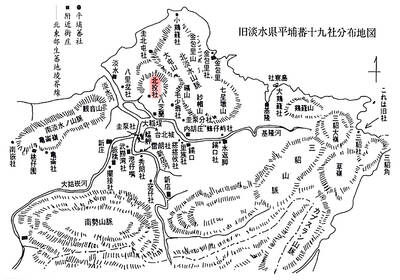
NOV. 24 to NOV. 30 It wasn’t famine, disaster or war that drove the people of Soansai to flee their homeland, but a blanket-stealing demon. At least that’s how Poan Yu-pie (潘有秘), a resident of the Indigenous settlement of Kipatauw in what is today Taipei’s Beitou District (北投), told it to Japanese anthropologist Kanori Ino in 1897. Unable to sleep out of fear, the villagers built a raft large enough to fit everyone and set sail. They drifted for days before arriving at what is now Shenao Port (深奧) on Taiwan’s north coast,
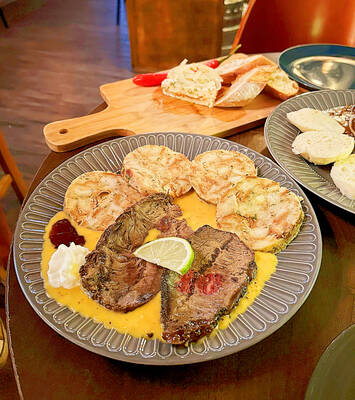
Divadlo feels like your warm neighborhood slice of home — even if you’ve only ever spent a few days in Prague, like myself. A projector is screening retro animations by Czech director Karel Zeman, the shelves are lined with books and vinyl, and the owner will sit with you to share stories over a glass of pear brandy. The food is also fantastic, not just a new cultural experience but filled with nostalgia, recipes from home and laden with soul-warming carbs, perfect as the weather turns chilly. A Prague native, Kaio Picha has been in Taipei for 13 years and